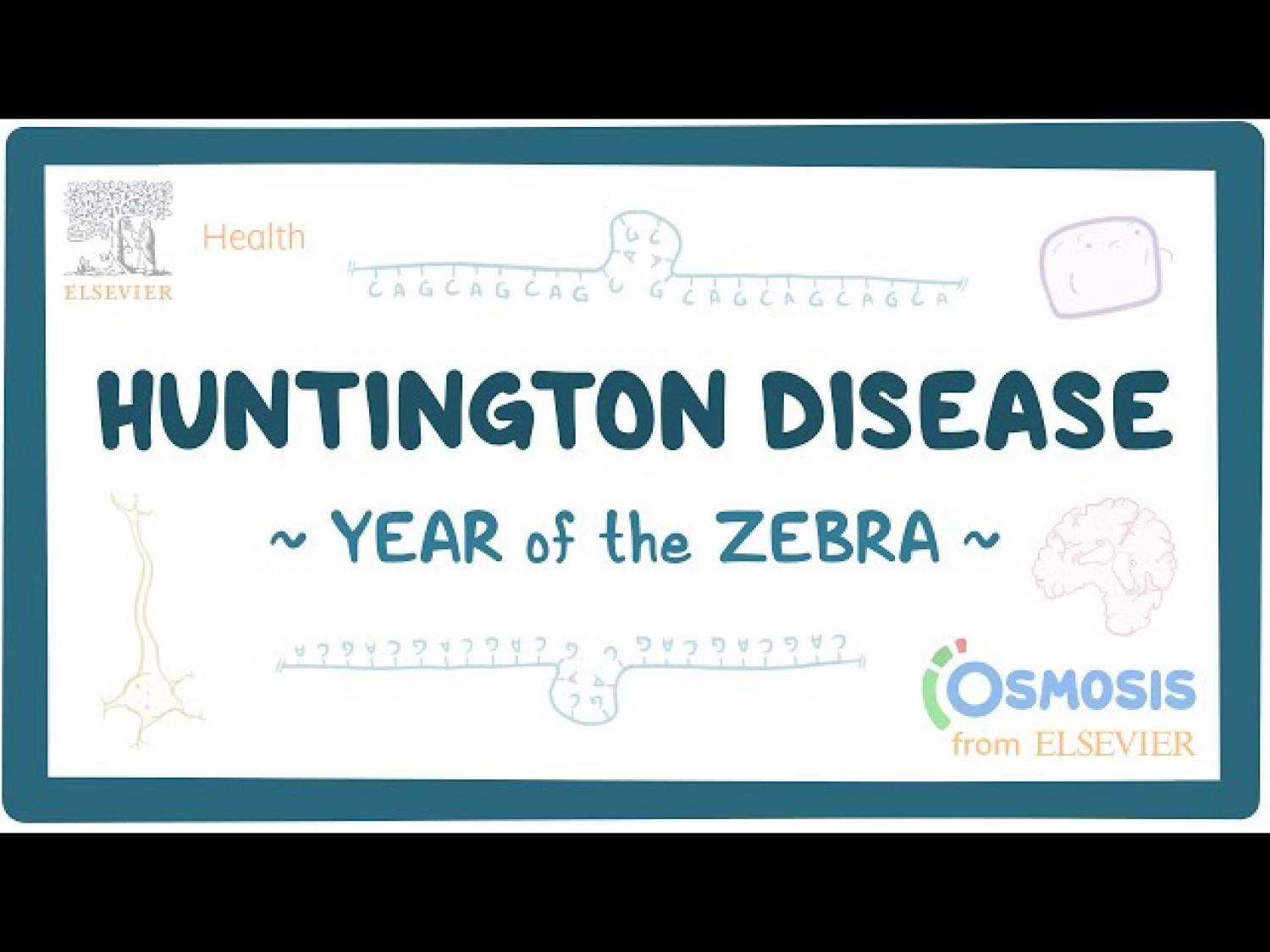
Rare Disease Education: Huntington's Disease
Editor: Kelsey LaFayette, DNP, RN, FNP-C
"When you hear hoofbeats, think of horses, not zebras,” is a common saying in medical education that means you should think of common conditions first, instead of rare ones, in making a diagnosis. “Rare” is a relative term though and about 7,000 rare, or "zebra," conditions affect more than 350 million individuals worldwide. Although these conditions collectively affect an enormous number of people, each of these conditions individually is rare enough that it can be difficult to secure the resources to study them and to develop treatments and cures. Likewise, awareness of rare conditions may be low and health care professionals may not be familiar with their signs and symptoms making it more difficult to reach a correct diagnosis and provide effective treatments.
To increase knowledge about rare conditions, Osmosis and the National Organization for Rare Diseases (NORD) have collaborated on an initiative to bring education and awareness to the public. We are excited to be a part of this initiative because we believe everyone deserves quality health care, no matter how rare their condition.
Zebra of the Week: Huntington's Disease
When was the last time you experienced a feeling of guilt? It is a powerful and often overwhelming emotion that can weigh heavily on our hearts and minds. Although guilt can stem from various sources, including our own actions, families affected by Huntington’s Disease often report carrying a guilt that they have no way to influence. Individuals affected fear transmitting the disease to their children, while those spared experience what they describe as survivor’s guilt.
Huntington’s Disease is a genetic disorder that progressively damages nerve cells in the brain, leading to a gradual loss of control over movement, cognition, and emotions. The symptoms usually begin to manifest in the 30s or 40s. Then, over a period of 10 to 25 years, symptoms including uncontrollable muscle movements, personality changes, loss of memory, and eventually dementia progressively become more prominent.
Huntington’s Disease is autosomal dominant, meaning the risk of transmission is 50 percent for each pregnancy regardless of the sex of the resulting child. Genetically, the disease is caused by abnormally long repeats in the DNA instructions for the huntingtin protein in neurons.
Meet Charlotte Conn
Meet Charlotte Conn, a brave individual who is facing the challenges of Huntington's disease with unwavering strength and determination.
Charlotte's journey began when, at the age of 11, her family had a heartfelt conversation with her, explaining the hereditary nature of the disease and its implications. As opposed to the sense of shame, this open and honest approach was crucial in helping Charlotte process the disease as she transitioned into an adulthood full of advocacy and fundraising efforts.
Charlotte was an integral part of the Year of the Zebra team that successfully reached the top of Mt. Kilimanjaro to kick off Rare Disease Awareness Month. She serves as an ambassador for The Huntington's Disease Association in the UK and The Huntington's Disease Youth Organization, sharing her story and participating in various events to raise awareness. Read her captivating story in her own words or watch her testimonial.
Organization Taking Strides
In 1967 Marjorie Guthrie, the wife of renowned folk singer Woody Guthrie, witnessed the devastating impact of Huntington's Disease on her husband and recognized the urgent need for support and resources for individuals and families affected by the disease.
Her determination led to the establishment of the Huntington's Disease Society of America, which has since become the largest voluntary organization dedicated to the disease in the United States. They provide vital support services, including counseling, support groups, and educational resources to help individuals and families navigate the challenges of Huntington’s Disease. The organization actively promotes research initiatives aimed at understanding the disease, developing improved treatments, and ultimately finding a cure. Learn more about the organization and how to get involved here.
More Information on Huntington's Disease:
Signs & Symptoms, Causes and Diagnosis
